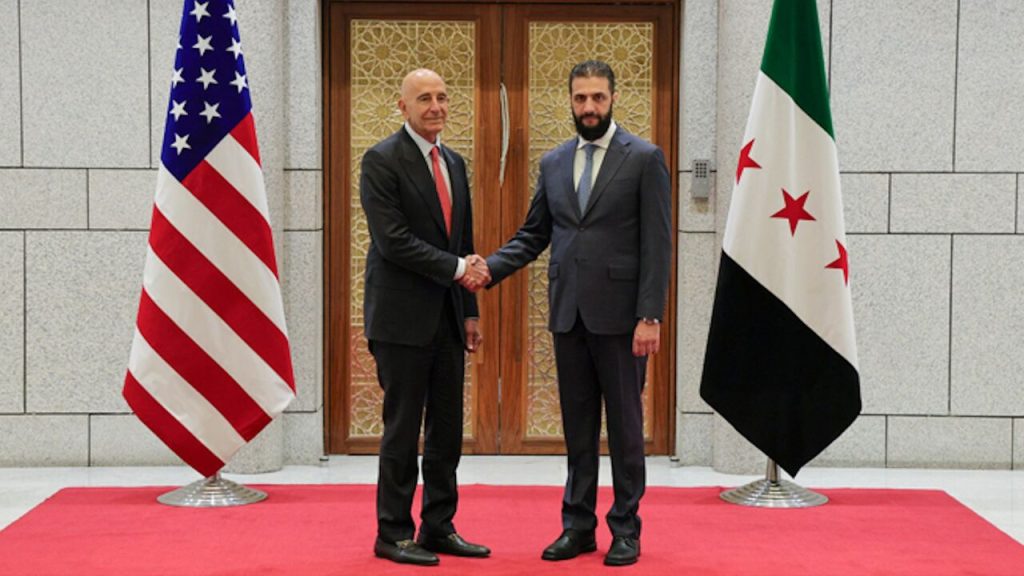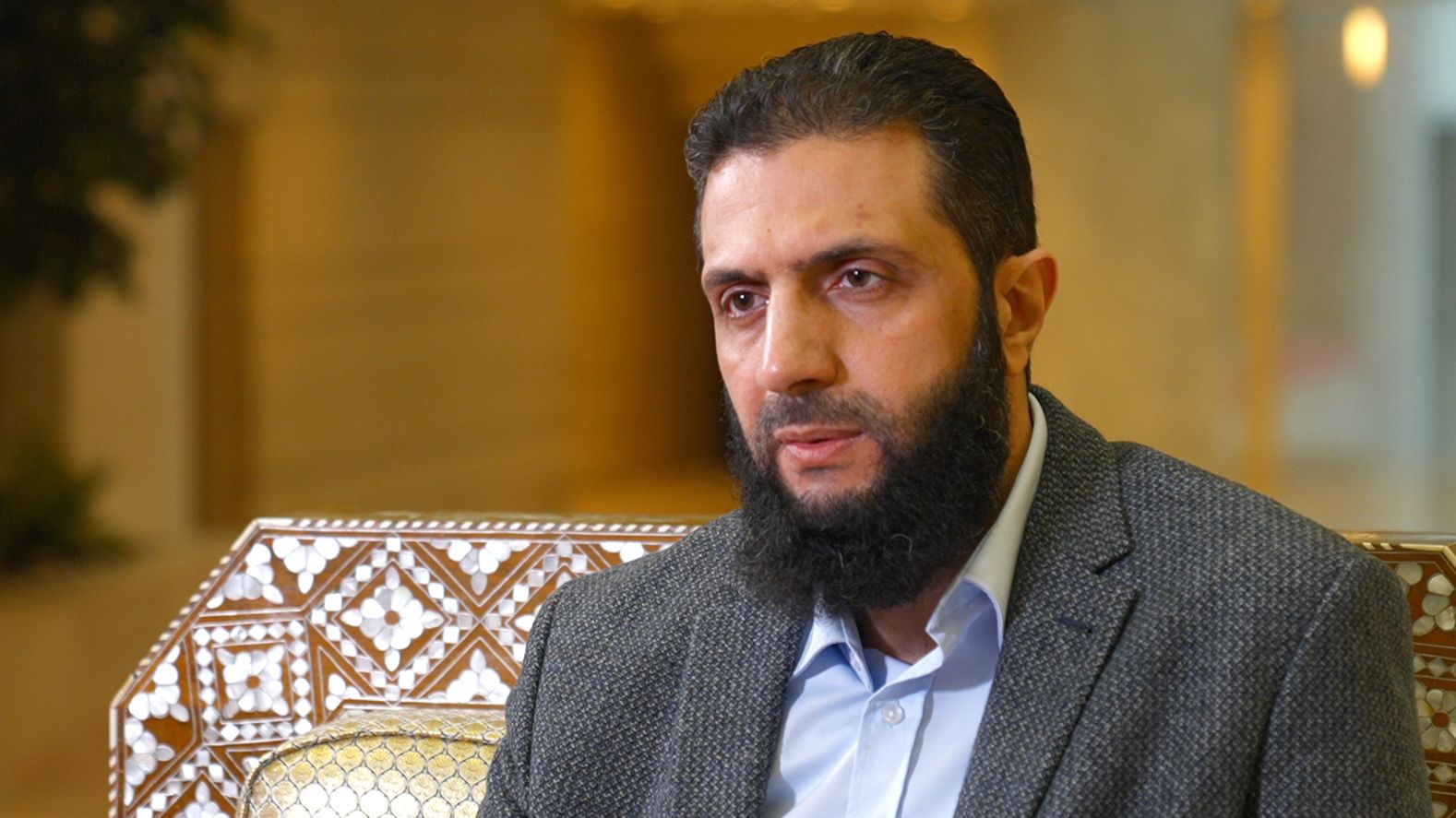The United States has expressed growing concern over the safety of Syrian President Ahmed al-Sharaa, with fears mounting that his outreach to Western powers and efforts to establish inclusive governance could make him a target for assassination.
Ambassador Tom Barrack, President Donald Trump’s special envoy for Syria, warned that disaffected militants may view Sharaa’s attempts at reform as a threat to their influence.
In an interview with Al-Monitor, Barrack emphasised the need to coordinate a protection strategy for Sharaa, especially as factions of foreign fighters who once fought alongside him against Bashar al-Assad are now being courted by extremist groups such as ISIS. With Syria’s interim government trying to integrate these fighters into its national military, the risks of splinter groups becoming destabilising forces continue to rise.
Barrack cautioned that prolonged economic hardship would likely foster discontent and encourage violent disruptions. He underlined the importance of intelligence cooperation among allies to pre-empt potential threats, rather than resorting to military involvement.
Describing Sharaa as intelligent, composed, and strategic, Barrack dismissed concerns about the Syrian leader’s past terrorism associations, praising his efforts to transform Idlib into a more moderate and inclusive society.
Sharaa’s group, Hayat Tahrir al-Sham (HTS), once tied to al-Qaeda and designated a terrorist organisation by the US, has ruled Idlib since 2017. While HTS’s rule was initially marked by harsh restrictions, recent years have seen the easing of social controls and renewed engagement with religious minorities, including Christians and Druze, with promises to restore confiscated properties.

Nonetheless, violence in Alawite regions and sectarian tensions remain a challenge for Sharaa’s fragile administration. Barrack acknowledged these difficulties but commended the Syrian leadership for maintaining order under immense pressure.
Barrack’s comments come shortly after Trump met with Sharaa in Riyadh on May 14, where he announced the lifting of all US sanctions on Syria—a dramatic shift in American policy. While some Trump officials had opposed engaging with Sharaa due to his past ties to extremism, the president’s decision to grant sanctions relief was made independently, according to Barrack.
The envoy made clear that while there are no preconditions to the sanctions lift, there are expectations for transparency and progress on agreed priorities. These include curbing Palestinian militant activity, moving towards joining the Abraham Accords, and suppressing the resurgence of ISIS.
The US Treasury has since authorised American entities to conduct financial transactions with Syrian institutions, and the State Department has issued a six-month waiver for sanctions under the Caesar Syria Civilian Protection Act, pending Congressional repeal.
Among the many issues facing Sharaa is the need to reconcile with Kurdish-led forces in the northeast and address radicalisation risks posed by detention camps holding suspected ISIS members. In March, a deal was struck to incorporate Kurdish fighters into the national army, and over 400 prisoners were exchanged between Sharaa’s government and the US-backed Syrian Democratic Forces (SDF). However, disputes such as control of the Tishreen Dam remain unresolved.
Barrack also highlighted the complex dynamic with Israel, which has stepped up operations in Syria since Assad’s fall. Though formal dialogue has not yet begun, Sharaa has committed to the 1974 ceasefire agreement and hinted at the possibility of normalised relations in the future. Barrack suggested that both sides are aware that further military engagement would be damaging.
Years of sanctions have devastated Syria’s economy, leaving over 90% of the population in poverty. Lifting these restrictions is seen as a necessary step towards rebuilding the country, encouraging regional investment, and creating visible progress. Barrack framed the US’s role as removing obstacles so that others can help Syria recover, describing the approach as “flooding the zone with hope.”


 Trending
Trending 